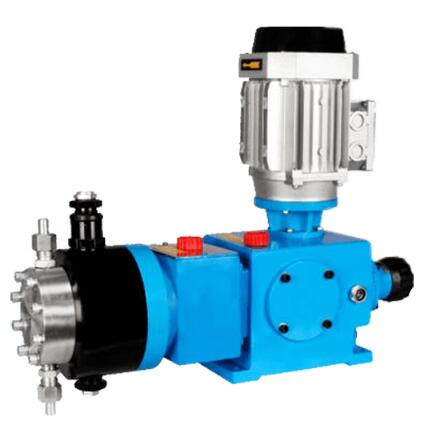Post time: Jun-14-2024
How Accurate Is the Flow Rate of a Metering Pump?
Metering pumps are critical devices in various industries, known for their ability to dispense precise amounts of liquids. The accuracy of a metering pump's flow rate is paramount in applications such as chemical dosing, water treatment, and pharmaceuticals. This article explores the factors influencing the flow rate accuracy of metering pumps and how to ensure optimal performance.

Principles of Metering Pump Operation
Metering pumps, also known as dosing pumps, are designed to deliver a precise volume of liquid within a specified period. They operate on different principles, including diaphragm, piston, and peristaltic mechanisms. The primary function is to ensure that the liquid is dispensed at a consistent and accurate flow rate, which is crucial for maintaining process integrity.
Factors Affecting Flow Rate Accuracy
Pump Design and Technology
The design and technology of a metering pump significantly influence its flow rate accuracy. Diaphragm pumps, for instance, are known for their precision due to the flexibility of the diaphragm and the controlled movement of the pump mechanism. Piston pumps, on the other hand, offer high accuracy in high-pressure applications. Peristaltic pumps are ideal for handling corrosive or viscous fluids while maintaining accurate flow rates.
Calibration and Maintenance
Regular calibration and maintenance are essential to ensure the accuracy of a metering pump. Calibration involves adjusting the pump to deliver the exact flow rate required for a specific application. Over time, wear and tear can affect the pump's performance, making routine maintenance and recalibration necessary to maintain accuracy.
Environmental Factors
External factors such as temperature, pressure, and the viscosity of the liquid being pumped can affect the flow rate accuracy of a metering pump. For example, temperature fluctuations can cause the liquid to expand or contract, altering the flow rate. Similarly, variations in pressure can impact the pump's ability to deliver a consistent volume of liquid.
Liquid Properties
The physical properties of the liquid, including viscosity, density, and chemical composition, play a critical role in determining the flow rate accuracy. High-viscosity liquids require more force to move, potentially affecting the pump’s performance. Understanding the liquid’s properties and selecting the appropriate pump type can mitigate these effects.
System Integration
The integration of the metering pump into the overall system also influences its accuracy. Factors such as the length and diameter of the tubing, the presence of valves and fittings, and the overall system design can impact the flow rate. Proper system design and integration are crucial for maintaining the accuracy of the metering pump.
Ensuring Optimal Accuracy
Selecting the Right Pump
Choosing the right metering pump for the specific application is the first step in ensuring accurate flow rates. Consider factors such as the required flow rate range, the properties of the liquid, and the operating conditions. Consulting with experts or the pump manufacturer can help in making the right selection.
Regular Monitoring and Adjustments
Continuous monitoring of the pump’s performance and making necessary adjustments can help maintain accuracy. Implementing sensors and control systems that provide real-time data on the flow rate can aid in detecting deviations and taking corrective actions promptly.
Routine Maintenance and Calibration
Establishing a routine maintenance and calibration schedule is crucial for ensuring the long-term accuracy of a metering pump. Regular inspections, part replacements, and recalibration can prevent performance degradation and ensure consistent flow rates.
Conclusion
The accuracy of the flow rate of a metering pump is influenced by several factors, including pump design, calibration, environmental conditions, liquid properties, and system integration. Ensuring optimal accuracy requires selecting the right pump, regular monitoring, and routine maintenance. For more information on selecting and maintaining metering pumps or to find a reliable supplier, contact us. We are committed to providing high-quality metering pumps and expert guidance to meet your specific needs.

















